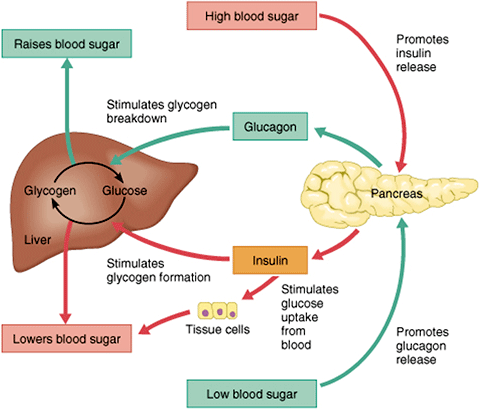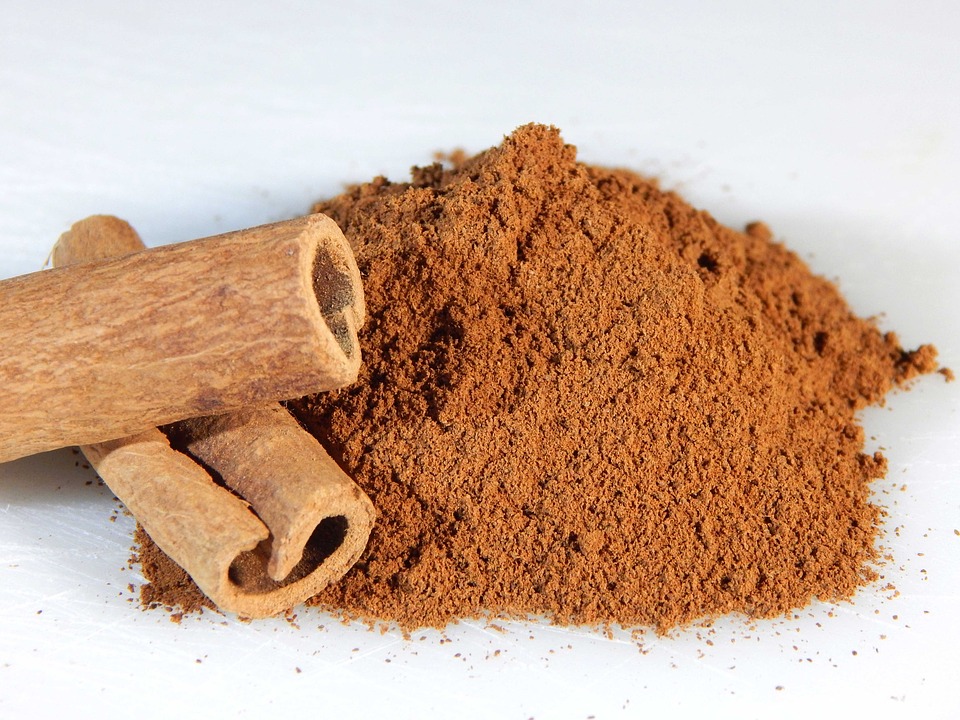In the quest for effective and natural solutions to weight management, cinnamon emerges as a spice with not only a delightful flavor but also potential health benefits. Beyond its culinary uses, cinnamon has garnered attention for its ability to influence weight and metabolism.

This article explores the scientific evidence behind cinnamon’s role in weight management, examining its impact on metabolism, appetite regulation, and overall health.
Understanding Cinnamon
Cinnamon, derived from the bark of trees belonging to the Cinnamomum genus, has been cherished for centuries for its warm and sweet taste. Beyond its culinary appeal, cinnamon has been a part of traditional medicine in various cultures. The two main types of cinnamon, Ceylon and Cassia, each have unique properties, but both contain compounds that contribute to their potential health benefits.
Cinnamon and Metabolism

One of the key ways cinnamon may aid in weight management is through its impact on metabolism. Research suggests that cinnamon can enhance insulin sensitivity, helping cells better respond to insulin and thereby improving glucose metabolism. This effect is particularly relevant for individuals with insulin resistance, a condition commonly associated with obesity and type 2 diabetes. By supporting insulin function, cinnamon may contribute to better blood sugar control and reduced fat storage.
Facilitating better glucose uptake by cells and potentially reducing the risk of excessive fat storage. By improving insulin sensitivity, cinnamon may contribute to more stable blood sugar levels, crucial for preventing the spikes that can lead to increased fat accumulation. Understanding how cinnamon interacts with key metabolic processes sheds light on its potential as a natural aid in supporting a healthy metabolism and, consequently, effective weight management strategies.
Blood Sugar Regulation
Stabilizing blood sugar levels is crucial for weight management, and cinnamon appears to play a significant role in this aspect. Studies have shown that cinnamon can lower fasting blood sugar levels and improve insulin sensitivity in both healthy individuals and those with insulin resistance. This regulation of blood sugar may prevent excessive insulin spikes, which can lead to increased fat storage. Understanding how cinnamon modulates blood sugar levels provides valuable insights into its potential as a weight management tool.
Cinnamon’s impact on blood sugar regulation extends beyond insulin sensitivity. Some studies suggest that the spice may also slow down the absorption of glucose after meals. By doing so, cinnamon could contribute to preventing the rapid spikes and crashes in blood sugar that can occur, providing a more stable and sustained source of energy.
It’s important to note that while the research on cinnamon and blood sugar regulation is promising, individual responses may vary. Factors such as the type of cinnamon used, the duration of supplementation, and the overall diet and lifestyle play roles in determining outcomes. As with any dietary intervention, consulting with a healthcare professional is advisable, especially for those with existing health conditions or taking medications.

Appetite Control and Weight Loss
The relationship between cinnamon and appetite regulation is a fascinating area of study. While more research is needed, some studies suggest that cinnamon may influence appetite-related hormones. The spice may help increase feelings of fullness and reduce overall food intake, potentially contributing to weight loss efforts. Exploring the mechanisms behind cinnamon’s impact on appetite can provide valuable insights into developing strategies for weight management.
Cinnamon appears to impact ghrelin, often dubbed the “hunger hormone,” and leptin, a hormone responsible for signaling satiety. Studies propose that cinnamon may reduce ghrelin levels, effectively suppressing feelings of hunger. Simultaneously, it may enhance the sensitivity of cells to leptin, promoting a sense of fullness and satisfaction after meals.

The potential appetite-suppressing effects of cinnamon make it a valuable ally for those seeking to manage their weight. By helping regulate the hormones that govern hunger and fullness, cinnamon may contribute to a reduced caloric intake, a key aspect of any successful weight loss strategy.
Incorporating cinnamon into daily meals can be both enjoyable and strategic. From adding a sprinkle to morning coffee or tea to including it in savory dishes, cinnamon offers a versatile and accessible means of supporting appetite control. However, it’s essential to remember that cinnamon alone is not a magic solution, and a holistic approach to weight loss, including a balanced diet and regular physical activity, remains paramount for lasting success. Always consult with a healthcare professional before making significant dietary changes, especially for individuals with underlying health conditions or those on medications.
Cinnamon and Fat Metabolism
Cinnamon’s effects on metabolism extend to its potential influence on fat metabolism. Research indicates that cinnamon may alter the expression of genes involved in fat storage and breakdown. This suggests that cinnamon might contribute to a more favorable balance between fat storage and utilization. Delving into the molecular mechanisms can provide a deeper understanding of how cinnamon affects fat metabolism and its implications for weight management.
Cinnamon may play a role in shaping the body’s approach to fat metabolism. Research suggests that this aromatic spice can affect the expression of genes involved in both fat storage and breakdown. By modulating these genetic factors, cinnamon may contribute to a more favorable balance between storing and utilizing fat. While the exact mechanisms are still under exploration, these findings open up intriguing possibilities for cinnamon as a natural supporter of healthy fat metabolism, potentially offering benefits for those looking to manage their weight. Incorporating cinnamon into a balanced diet may be a flavorful strategy to promote overall metabolic well-being.

Cinnamon and Exercise Performance
Exercise is a cornerstone of any effective weight management strategy, and cinnamon may offer additional benefits in this realm. Some studies suggest that cinnamon supplementation could enhance exercise performance by improving energy metabolism and reducing oxidative stress. Understanding the interplay between cinnamon, exercise, and weight management can provide valuable insights for individuals looking to optimize their fitness routines.
Emerging research suggests that cinnamon may offer more than just a delightful flavor; it could enhance exercise performance. Studies indicate that cinnamon supplementation might positively impact energy metabolism and reduce oxidative stress during physical activity.
By supporting the body’s energy systems and mitigating exercise-induced stress, cinnamon could become a valuable addition to pre-workout routines. While further research is needed to fully understand the mechanisms at play, incorporating cinnamon into the diet may be a simple and tasty strategy for individuals aiming to optimize their exercise performance and overall fitness levels.

Cinnamon Varieties and Doses

Not all cinnamon is created equal, and understanding the distinctions is crucial for harnessing its benefits. The two main varieties, Ceylon and Cassia, differ in coumarin content, with Cassia containing higher levels.
While coumarin is generally safe in small amounts, excessive intake may pose health risks. Opting for Ceylon cinnamon or moderation in Cassia consumption is advisable.
Recommended doses for health benefits vary, but incorporating around 1-2 teaspoons (2-4 grams) of cinnamon into daily meals may strike a balance between flavor and potential advantages. As with any dietary change, consulting a healthcare professional ensures a safe and effective approach.
Incorporating Cinnamon into Your Diet
Making cinnamon a regular part of your diet is not only delicious but can also offer potential health benefits. Here are creative and enjoyable ways to incorporate this versatile spice into your meals:

- Morning Boost: Sprinkle cinnamon on your morning oatmeal, cereal, or yogurt. This adds a warm, sweet flavor and provides a nutrient-packed start to your day.
- Beverage Delight: Stir cinnamon into your coffee, tea, or hot chocolate. It enhances the flavor and contributes to a cozy, comforting experience.
- Smoothie Twist: Add a dash of cinnamon to your favorite smoothie recipe. It pairs well with fruits like bananas, apples, or berries, creating a tasty and nutritious blend.
- Savory Sensation: Experiment with cinnamon in savory dishes. It complements roasted vegetables, stews, and curries, imparting a unique depth of flavor.
- Baked Goodness: Enhance your baked goods by incorporating cinnamon into muffins, pancakes, or banana bread. The aroma alone will make your kitchen feel warm and inviting.
- Spiced Nuts: Toss nuts in cinnamon and a touch of honey, then bake for a delicious and healthy snack—Cinnamon’s warmth pairs exceptionally well with the nutty flavors.
- Appetizing Spreads: Mix cinnamon into nut butter or cream cheese for a flavorful spread on toast or crackers.
- Dessert Elegance: Sprinkle cinnamon on desserts like ice cream, pudding, or baked apples for a finishing touch that elevates the sweetness.
Considerations and Precautions
While cinnamon holds promise as a natural aid in weight management, it’s essential to consider individual health conditions and potential interactions with medications. Consulting with a healthcare professional before making significant dietary changes or using cinnamon supplements is crucial.
Understanding the limitations and precautions associated with cinnamon ensures that individuals can incorporate it safely into their weight management journey.
Conclusion:
In the intricate tapestry of weight management, cinnamon emerges as a spice with multifaceted potential. From its impact on metabolism and blood sugar regulation to appetite control and exercise performance, cinnamon offers a holistic approach to supporting a healthy weight.
While more research is needed to fully unlock its secrets, the current evidence suggests that cinnamon can be a valuable ally in the pursuit of a balanced and sustainable weight management strategy.
